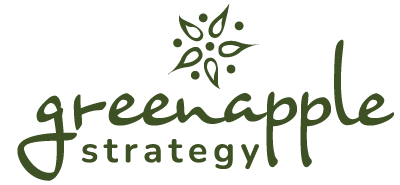Searching for the right marketing agency is a process. We understand—there are a lot of options. How can you know which one is the best? Like any relationship, they need to earn your trust, and you want to feel confident before selecting the right one. Before you grant them the power of connecting with your audience, spending your marketing funds, and accessing your client information, you need to feel assured in your decision. To make the process easier, we assembled the top seven questions you should ask your contenders before hiring a marketing agency.
1. What Are Your Industry Specialties?
Are you a B2B or B2C company? Do you have a niche? While some marketing agencies don’t promote specializing in one area, discussing their most popular industries or projects is worth mentioning. If you want to improve SEO, and the agency focuses primarily on media relations, be sure to keep your goals in mind and not settle if you want an agency that has more experience in your current priorities.
Having conversations about common client types also allows you to ask if they are currently working with any of your competitors. Knowing possible conflicts of interest at the beginning will prevent potential development or implementation roadblocks that could negatively impact your service.
2. How do you Communicate with Clients?
One of the greatest benefits of working with a marketing agency is having insight into marketers’ perspectives. However, you want to be sure that these suggestions and ideas are being effectively communicated with you.
Even if you’re new to agency business, you have an idea of how often you need updates or what your communication preferences are. Asking for reporting and dialogue habits will help determine if that’s what you want in an agency partnership. Most agencies will listen and correspond to your preferences. That being said, it will be helpful if your priorities align. That way, both sides are comfortable, resulting in more effective processes and results.
3. How Much Will This Cost?
Yes, talking about money can be uncomfortable. However, these conversations are necessary early on to determine your options. You don’t want to go with the least expensive option because they’re the cheapest, and you also shouldn’t proceed with the most costly if there’s no valid reasoning.
Describe what you want and ask them what that range looks like, but continue to dig beyond that. Determine how pricing is structured, what resources they’ll utilize, what percentage goes toward efforts vs. billing, etc. Once you have the numbers you’re looking for, compare with a few other finalists and determine what seems the most valuable to you.
4. What Do I Own before Our Contract Ends?
There are some instances where the client does not own any of the content that the agency developed for them. This could include photography, graphics, coding, or other branded resources that you may assume are yours. It is imperative to discuss this information upfront so that you know exactly what you are agreeing to. Just in case the relationship or project goes awry, you want to know what is legally yours to avoid issues.
5. Who Will I Be Working with Directly?
Building a foundation with your leading account holder(s) is beneficial for communication, expectations, and trust. Asking who you will be working with allows you the opportunity to research the individuals on LinkedIn and discover their professional background, including experience and longevity. While newer executives shouldn’t be discarded, it may give you peace of mind to find senior team members who will assist you with your account.
6. Can I see Your References?
Just like when you’re shopping online or deciding on a restaurant, reviews and photos give you what you need in your decision-making process. In your agency decision process, request case studies, testimonials, and examples that they find valuable. If ROI is important to you, ask specifically for projects with metric-centered results, like audience growth and CTA conversion. If you’re re-branding or need graphic design assistance, focus on visible transformations, like logo or website portfolios.
7. What Are Your Expectations of Your Clients?
Is there a limit on revisions? Are there certain times that are off-limits? When is an appropriate turnaround time for approval? Talking about expectations for you as a client helps you distinguish how much or little you want to be involved or if your priorities coordinate.
At the end of the day, you’re the client, and they are working for you. If their expectations aren’t reasonable for you, don’t settle. There are plenty more fish in the sea.
Bonus: Ask yourself: What does my gut say?
We sometimes tend to ignore gut feelings, and we usually regret that. Maybe an agency looks good on paper, but you lack the chemistry with your account executive. Don’t dismiss your intuition, even if your brain is thinking something else.
Throughout the process, you’ll learn the agency’s values, culture, and leadership, and you will quickly find out if there are certain details that you can’t get past. Trusting your instincts will only lead to better opportunities.
Thinking About Hiring a Marketing Agency?
Hiring a marketing agency involves many factors, and it can be daunting signing the dotted line. We want you in the right marketing hands just as much as you do. Green Apple Strategy helps companies strategically tell their stories and successfully implement their goals through our comprehensive set of services. Schedule a consultation today. We would love to see if we’re the right fit for you!







